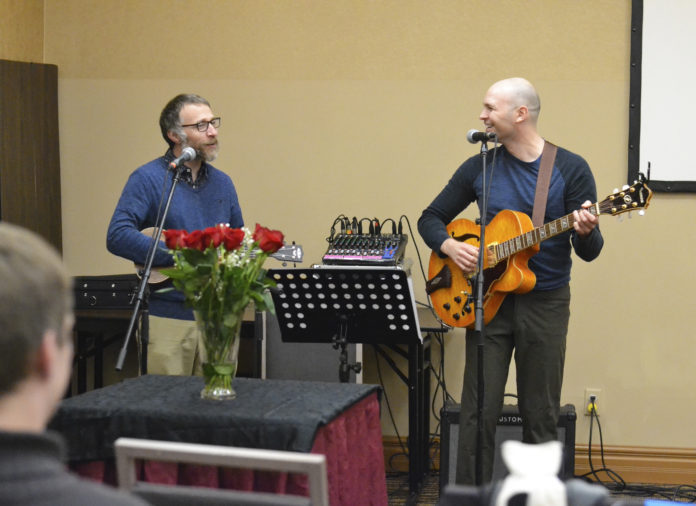
The Bahá’í Faith is the second most widespread religion in the world after Christianity
Karen DeMong-Elliot was raised a Catholic, but she knew there was a personal gap in her faith when she started travelling.
When she was in her 20s, DeMong-Elliot went to Indonesia—a Muslim-dominated country located in southeast Asia.
“There had to be something that brought Christians and Muslims and people together from different parts of the world,” she said, explaining the lingering question she had in the back of her mind.
There was—it was the Bahá’í Faith. DeMong-Elliot has now been following the religion for over 30 years.
The Bahá’í Faith started in the mid-1800s in Iran. The religion teaches the unity of humanity and the harmony of religion. More specifically, the equality of sexes and a world without prejudice and racism.
Monday marked the 200th anniversary of the birth of The Báb, a young Iranian considered one of two founders of the religion. The other is Bahá’u’lláh, who assumed leadership when The Báb was executed in 1850.
Prince Albert held one of the millions of Bicentenary 2019 celebrations on Monday evening at the Best Western Hotel. The community bonded over prayers, a skit performed by youth, a film and refreshments.
Unlike DeMong-Elliot, Jinus Makari was born in Iran and is a fourth generation Bahá’í.
“We invited everyone, like people are welcome to come to the celebration,” she said, emphasizing their community isn’t just made up of Bahá’ís, but also their friends and families.
Makari explained that investigating the truth is a core Bahá’í principle, even if that means you no longer follow the faith.
“At the age of 15, you’re old enough to decide your religion, so that’s the time I declared to be a Bahá’í.”
She said another Bahá’í principle is what’s called ‘progressive revelation.’ This means all religions have one god, and God sends messengers throughout the years. These include Krishna (Hinduism), the Buddha (Buddhism), Jesus (Christianity), Muhammad (Islam) and The Báb.
“In order to be a Bahá’í, you have to believe in Jesus; you have to believe in Muhammad. It’s like going to school. You go grade one, two, three. You can’t just (stay in) a grade,” said Makari.
DeMong-Elliott added they believe humanity is always progressing, and these messengers act as educators as we evolve.
“We need to understand that all people are one and that we need to work together. It’s challenging, though. We’re having lots of problems in our political system and so on, but the teachings of the Bahá’í Faith are part of the plan so that we can work together and cooperate together and come up with the solutions to our issues,” she said.
About 20 people joined DeMong-Elliott and Makari to celebrate the 200th anniversary of the birth of The Báb.
“This celebration is so important and significant that we’re celebrating it worldwide,” said DeMong-Elliott.
The Prince Albert community may not be very big, explained the two Bahá’ís, but they’re always working together to host celebrations.
“We have a small community, but we are a really busy community and we observe all of our holy days,” said Makari, and DeMong-Elliott agreed.
“It’s not large, but it’s mighty.”

